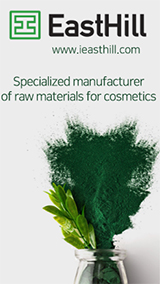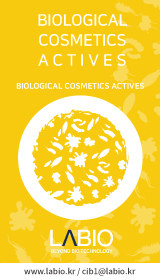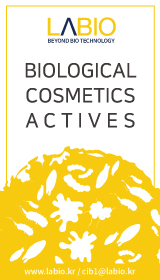
Since June of last year, the Korea Cosmetics Association has formed a public-private consultative body for regulatory innovation with the participation of experts from the Ministry of Food and Drug Safety, related institutions, and academia, and as the first step for a new leap forward for K-beauty, global standardization and currentization of regulations related to the cosmetics industry carried out activities for
Through six months of consultative body activities, the details of the innovation targets were greatly changed under the premise of △ conversion to a global negative system for fostering innovative and creative brands △ introduction of the K-beauty global safety management system △ establishment of a global standard quality management system. derived
The basic requirement and the biggest challenge for such regulatory innovation is that the current cosmetics law must be 'completely revised' to the level of 'newly enacted'. This not only has to go through the process of proposing a revision (proposal) and passing it in the plenary session of the National Assembly, but also needs to leave open the possibility that the initially intended direction and purpose may change in the process.
Regardless of future schedules, Cosmorning reviews the regulatory innovation tasks and directions presented by the Cosmetics Association through discussions with the Ministry of Food and Drug Safety for each issue and publishes detailed plans for them in series. The fifth topic of discussion and the last item to be checked in this series is 'Improvement of quality management system as a global stand'.
<Editor's Note>
In order to achieve the world's No. 1 export of K-beauty and harmonize global regulations, four topics have been reviewed five times so far.
In the end, in order to overcome the current crisis in the cosmetics industry and take a new leap forward as the world's No. 1 cosmetic exporter, it is necessary to break away from the government-led management system and establish a safety management system that meets global standards and prepare a quality management system. It can be summarized and summarized as that △ cosmetics companies must complete the mission of redoubling their efforts to secure their own competitiveness amid such institutional-level innovation.
Applies cosmetics GMP standards and ISO GMP standards
Currently, almost all countries around the world, including Europe and Japan, as well as ASEAN, adopt ISO GMP standards as cosmetics GMP standards or apply industry voluntary guidelines.
The 'Cosmetics Modernization Act' (MoCRA) recently enacted by the United States is also expected to adopt ISO GMP standards when GMP is mandated (excluding small businesses in December 2025). In other words, 'cosmetics GMP standards are ISO GMP standards' in the world is the global standard.
In particular, ICCR (International Cooperation on Cosmetics Regulation), which Korea joined as a regular member in 2020, also held a second meeting in 2008 to comply with the International Organization for Standardization (ISO) cosmetics GMP standard (ISO 22716: 2007 Cosmetics-Good Manufacturing Practices (GMP)-Guidelines on Good Manufacturing Practices) were resolved as far as possible.
Need to unify domestic GMP and ISO GMP standards
Currently, GMP in Korea is a manufacturer recommendation. Cosmetics manufacturers receive domestic GMP certification according to the GMP standards announced by the Ministry of Food and Drug Safety, but when exporting overseas, at the request of buyers, etc., in addition to domestic GMP certification, the International Organization for Standardization (ISO) GMP (ISO 22716) certification is required. are doing After all, for overseas exports, ISO GMP certification is additionally required.
Due to the need for such double certification, manufacturers who receive both certifications have no choice but to endure 'double certification and double management' in order to enter the domestic and global cosmetics market at the same time.
In this regard, the public-private consultative body including the Cosmetics Association said, “Especially in the case of domestic GMP standards for cosmetics, there are still areas where GMP management standards for pharmaceuticals that do not fit the characteristics of cosmetics (air conditioning facility obligations, standards, etc.) still exist, so domestic GMP standards and international standardization There is an urgent need to review ISO standards and unify domestic GMP standards with the international standard ISO GMP standards that are internationally used.”
Establishment of global standard quality management system and government support
In order to increase the effectiveness of the domestic cosmetics GMP system, it is pointed out that the improvement review of the current GMP operation plan should be followed along with the unification of the ISO GMP standard of the domestic GMP standard pointed out above.
Domestic GMP certification can be highly reliable as it is government direct certification, but since the audit is conducted by applying uniform GMP standards that do not consider the size and situation of the company, the number of domestic GMP-suitable establishments is only 3.3% of all manufacturers. .
In other words, as of the end of February, there were 148 cosmetics GMP-compliant establishments, accounting for about 3.3% of the total 4,427 manufacturers.
According to a survey of cosmetics manufacturers from 2018 to 2022, the main difficulties complained of in the domestic GMP certification examination are △ standardized evaluation that does not consider the size and characteristics of the manufacturing plant △ products that do not fit the characteristics of cosmetics Evaluation according to the pharmaceutical GMP system △ Hardware-centered evaluation, such as facility equipment and air conditioning facility installation, etc., increased the burden on companies △ The need for an evaluation system that supports actual production, not crackdowns and regulations, was revealed.
The cosmetics industry said, “Based on these complaints, GMP operation is a ‘governmental effort’ for cosmetic manufacturers to introduce GMP suitable for their scale and situation, thereby resolving industry difficulties arising from the GMP review process and increasing GMP operation flexibility to activate GMP. It is necessary to make a decision to convert direct certification to private autonomy.”
However, there are some aspects that should not be overlooked at this point.
In other words, when exporting to China, the submission of toxicity test data is exempted with a GMP certificate issued by the government, so even if the private sector is autonomous, it is necessary to prepare certain procedures for export like foreign countries (especially China), and support such as issuance of a GMP certificate by the government that it is.
In the case of China, there is a system that exempts the submission of a toxicity test report when exporting a product if it can sufficiently prove product safety through product safety evaluation results after receiving a quality certification related to the production quality management system issued by the government.
And △ French ANSM (National Institute of Medicine and Health Products Safety) issues GMP certificate regardless of third party certification △ Department of International Trade (DIT) entrusted by UK OPSS (Product Safety and Standards Office) reviews private certification and issues GMP certificate There are cases where the government issues GMP certificates, such as
An official from the Korea Cosmetics Association said, “As far as the regulatory innovation tasks in the cosmetics sector are introduced and operated, a self-regulatory dispute resolution body for cosmetics advertisements is introduced and operated, functional cosmetics review and reporting systems are reviewed, the natural and organic cosmetics certification system is privately led, and K-beauty global safety is established. The step-by-step introduction of the management system and △ improvement of the global standard quality management system were issues that were discussed in depth last year by the public-private consultative body for regulatory innovation, in which experts from the Ministry of Food and Drug Safety, related institutions, and academia participated. We will continue to collect opinions and realize them by holding meetings and workshops with future cosmetics companies, so we will do our best to secure K-beauty's leap forward and its status as the world's No. 1 export industry," he emphasized.







